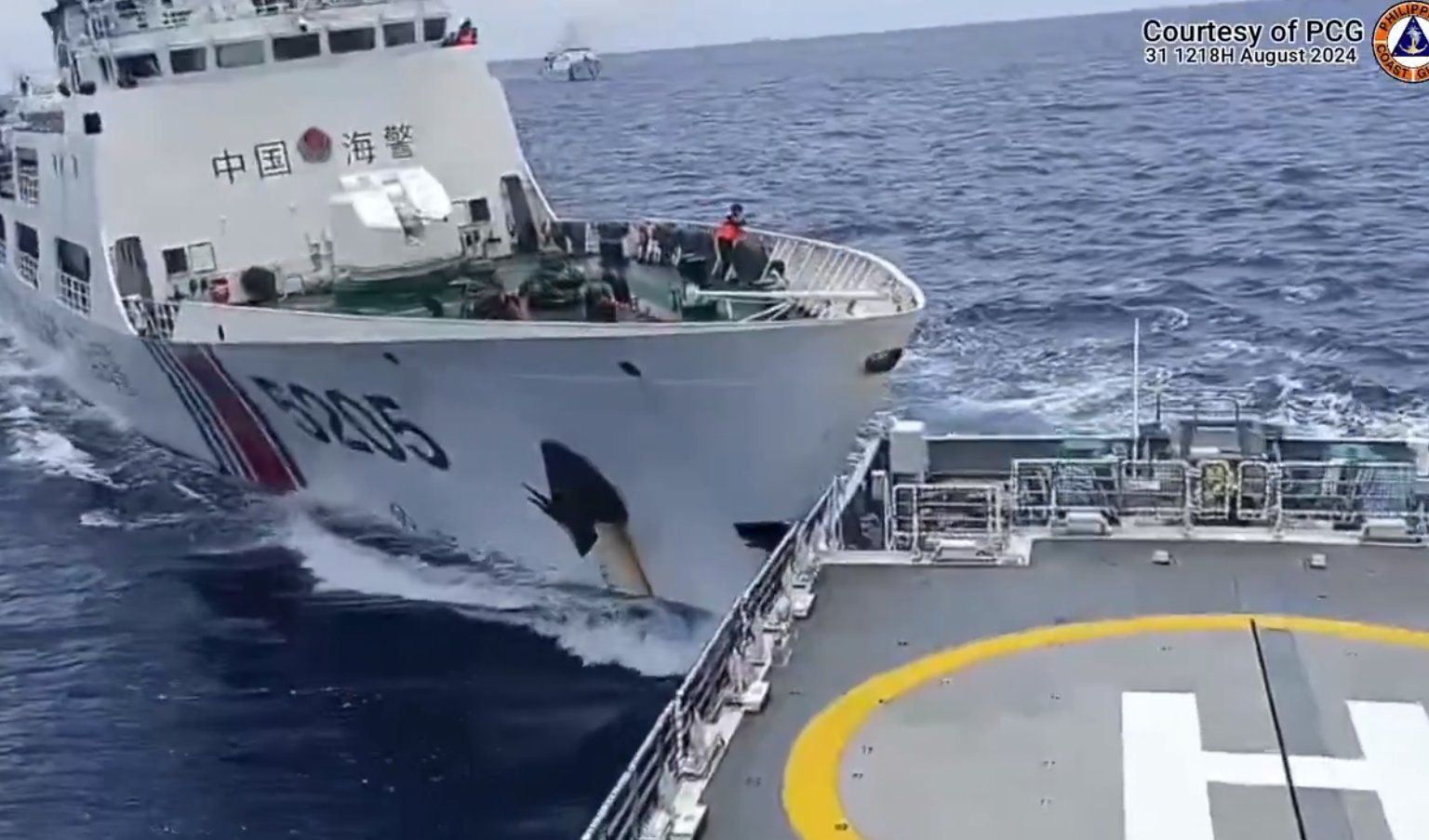US stands by PH in recent South China Sea collision incident
At A Glance
- PCG Commodore Jay Tarriela said BRP Teresa Magbanua was initially surrounded by numerous Chinese maritime forces and militia vessels "in different areas that are proximate within the distance" of the anchored PCG vessel.
The United States of America (USA) has expressed its support for the Philippines following another incident of Chinese aggression where the China Coast Guard (CCG) rammed a Philippine Coast Guard (PCG) vessel in Escoda Shoal in the South China Sea (SCS).

In a statement on Sunday, Sept. 1, US Department of State spokesman Matthew Miller said the US "condemns" China's actions against the Philippines in the South China Sea.
"The United States stands with its ally, the Philippines, and condemns the dangerous escalatory actions by the People's Republic of China (PRC) against lawful Philippine operations in the vicinity of Sabina Shoal in the South China Sea," he said.
According to Miller, China's unlawful claims of "territorial sovereignty" over ocean areas where no land territory exists, and its increasingly aggressive actions to enforce them, threaten the freedoms of navigation and overflight of all nations.
"The United States reiterates its call for the PRC to comport its claims and actions with international law and to desist from dangerous and destabilizing conduct," he added.
Miller then noted that the Philippines and the US have a mutual defense treaty (MDT) which extends to armed attacks on Philippine armed forces, public vessels, or aircraft — including those of its Coast Guard — anywhere in the South China Sea.
The National Maritime Council (NMC) and the Philippine Coast Guard (PCG) reported on Saturday, Aug. 31, that BRP Teresa Magbanua (MRV-9701) sustained damages after it was intentionally hit several times by a China Coast Guard vessel.
PCG Commodore Jay Tarriela said Magbanua was initially surrounded by numerous Chinese maritime forces and militia vessels “in different areas that are proximate within the distance” of the anchored PCG vessel.
Tarriela narrated that around 8:50 a.m., Magbanua hoisted its anchor "with the intention of loitering around Escoda." At around 12:07 p.m. when the PCG vessel was already on the move, CCG vessel 5202 executed a "dangerous maneuver," resulting in the direct ramming on the port bow of Magbanua.
“Obviously, the Chinese Coast Guard vessel 5202 has ignored collision regulation because of such action,” he said.
The PCG official said CCG vessel 5202 turned around and then "directly and intentionally" rammed the Philippine vessel's port beam.
"It is important for us to take note that this ramming happened despite our unprovoked action and presence in Escoda Shoal," he added.
An issue with China
According to Tarriela, Escoda Shoal has been an issue for the Chinese government since the Philippines deployed BRP Teresa Magbanua last April 15. China has filed a diplomatic protest for BRP Teresa Magbanua to withdraw from Escoda Shoal.
They also used different platforms to highlight and see this as a semi-grounded or a possible place for creating a formal deployment base, he said.
"So as far as the Chinese Coast Guard is concerned, these are their different appreciation of our deployment for Teresa Magbanua," Tarriela said.
"But, as I said, for the Philippine Coast Guard, the reason and objective of the deployment of Teresa Magbanua is only purely for us to carry out a legal and legitimate Coast Guard operation within our own exclusive economic zone," he added.
Illegal presence
Meanwhile, NMC spokesman retired Vice Admiral Alexander Lopez stood firm that the Chinese presence in Escoda Shoal is illegal as against Beijing’s claim that Philippine vessels are trespassing.
"Let us be clear about it. Escoda Shoal is 75 nautical miles from Palawan. It is well within our 200 Exclusive Economic Zone," he said.
Lopez added that based on the United Nations Convention on the Law of the Sea (UNCLOS) and the 2016 arbitral ruling, the Philippines has sovereign rights and jurisdiction over the area.
"The Chinese Coast Guard vessels are the ones illegally — yung presence nila there are illegal. We are there on a legal basis," he said.
"Dahil atin yun, hindi tayo puwedeng magpaalam sa sariling bahay natin (Because that is ours, we shouldn't be asking permission). Let us be very clear about it," he added.